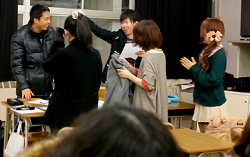Some academics generally consider that a good theory provides a framework for understanding phenomena and serves as a bridge between research and practice [1, 2]. Others assert that theories cannot explain learning, are wasteful and misleading, and only of historical value [8, 9]. Hildegard and Bower argued that research should focus on scientific efforts that analyze changes as learning occurs, not on pursuing paths that “are strewn with discarded theories” [9, p. 143].
Neurology research relegates theory to history
Emerging discoveries in genetics and neurology increasingly provide the scientific focus that some physical scientists believe will relegate learning theory to the historical dustbin. Genetics and neurology research demonstrate what is happening in the brain and explain cognitive processes in the language of biology [10]. Harvard University psychologist Jerome Kagan rejected emerging mechanistic notions of learning asserted by the physical sciences by declaring that “it is not possible” to translate emotional states into biological terms. Cognitive processes may have an identifiable mechanical jumping point, but “each brain state permits an envelope of psychological possibilities that are influenced by the history and context. “A particular brain state can lead to different psychological states in different people acting in distinct situations” [10, p. 27], Kagan said. In other words, learning is a highly individualized and complex process that cannot be explained by a single theory.
Theory provides a path to understanding learning
While disparate perspectives and dynamically interacting factors make a clear definition of learning elusive, understanding the historical and philosophical foundations of learning theory can help to
- Decipher the motive and deduce the effects of modern practices in learning environments.
- Provide a framework for understanding learning.
- Suggest solutions for practical learning problems [4].
- Promote understanding of learning systems that are built on these theories.
- Guide decisions about practices for creating a “more desirable learning experience” [1, p. 16] for learners.
- Serve as fodder for feeding academic papers on learning theory.





![Your brain can keep growing, adapting, and learning at any age, if you are willing to put in the effort [Image: Copilot]](/images/Images/best-years-for-adult-brain300.png)
